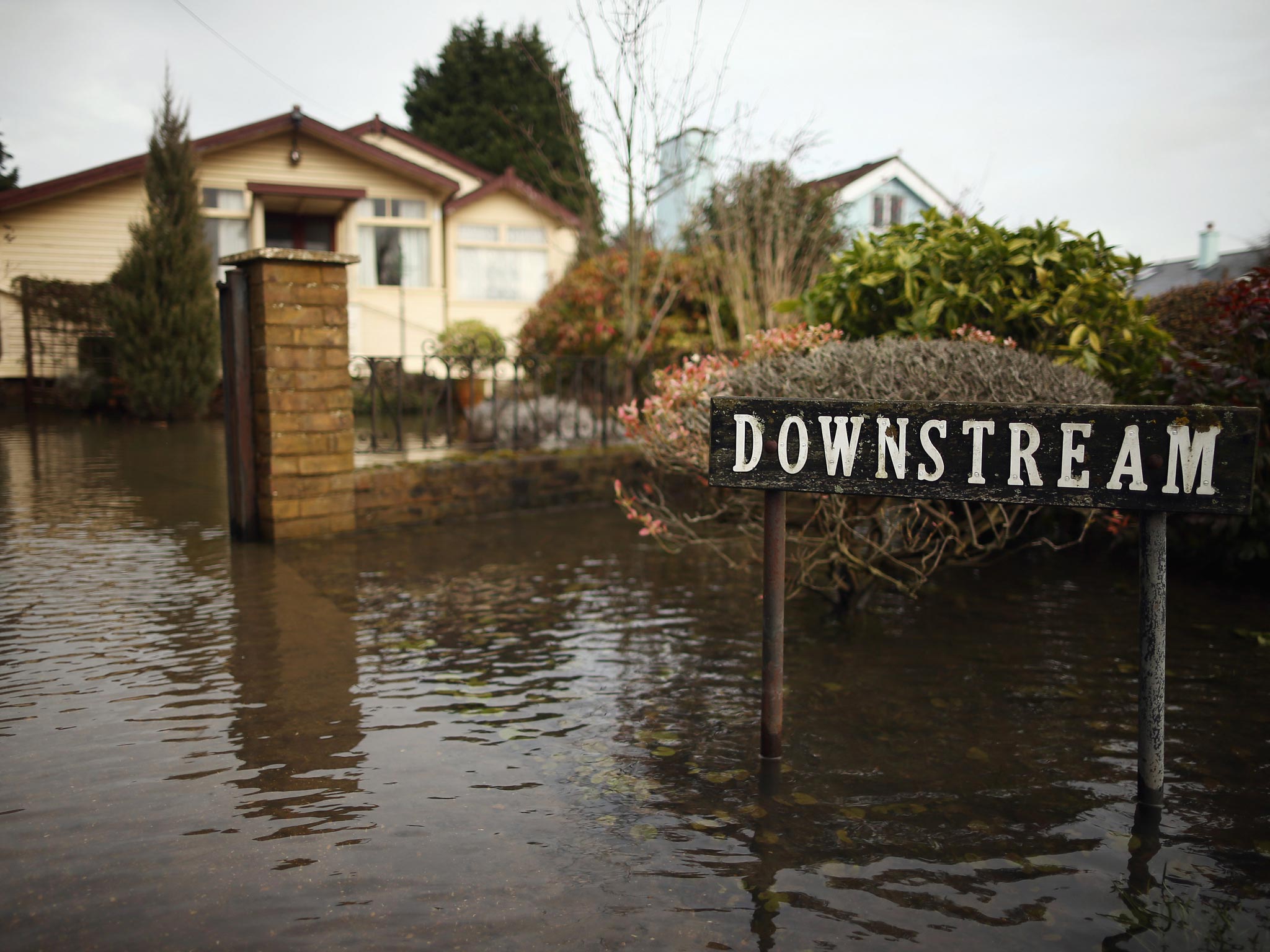UK weather: Flood risk could remain high for several months due to saturated ground, Environment Agency warns
Met Office issues amber warning for rain in the south-west of England with 40mm of rain expected in some already saturated areas

The ground across the south of England is now so saturated that the flood risk will remain high for several months to come, the Environment Agency warned on Monday.
The ground across southern Britain is now so saturated that the risk of further flooding will remain high for several months, the Environment Agency has warned.
The agency's flood risk manager, Kat Evans, said the situation was generally improving, especially in coastal areas where the risks from winter storms had abated.
But she highlighted a new problem: with groundwater levels so high, flooding is likely to remain a considerable concern for some time in counties including Kent, Hampshire, Wiltshire and Dorset. “There is an emerging issue around ground water, which is continuing to rise around the South-West and South-East of England,” she said, adding that this could cause problems by flowing into rivers and streams that were already inundated.
Because the water is “creeping underground”, it is difficult to assess where it poses a risk, she said. This could cause problems further afield when it comes out of the ground in “sporadic places around the country”. Ms Evans added: “This problem will continue to exist for the next few weeks, if not the next few months [depending on how much more rain falls].” She pointed out that during the last major floods, in 2001, it took six weeks for water-table levels to return to normal.
Up to 20mm (0.8in) of rain was forecast to fall across the South-West. Forecasters said that Tuesday should be brighter and drier, with temperatures higher than average for the time of year, but another area of low pressure is set to arrive on Thursday and Friday, with stronger winds and more rain.
After meeting flood-hit residents in Upton-upon-Severn, Worcestershire, David Cameron described the results of the winter storms as a “tragedy” and vowed to visit every affected area around Britain “to try and learn lessons”.
The Met Office issued another amber “be prepared” warning for rain in South-West England, with 40mm of rain expected to fall in already saturated ground.
The Environment Agency said it had issued 14 severe flooding warnings - meaning “risk of death” - in the South-East, but these were downgraded on Monday night. Two severe warnings remained in place in the South-West.
As soldiers completed building a 600m-long aqua dam, known as the Chertsey Sausage, along banks of the Thames in Surrey, groups of offenders on “community payback” schemes were drafted in to help residents on the flooded Somerset Levels by filling hundreds of sandbags.
A £256m scheme to protect towns flooded by the Thames may never be built because of a massive shortfall in funding, according to a BBC Panorama report.
The project could protect up to 20,000 homes but because of changes to funding rules in 2011, the Government will not release £136m for it until the Environment Agency and other partners can raise the rest.
The agency told the BBC it was working with seven local councils on a “strategy to attract the rest of the funding needed to complete the scheme”. But a spokesman added that: “Under the previous system, where schemes were funded by central government in their entirety or not at all, this scheme may never have gained funding.”
Meanwhile, three flats and a house were evacuated after a 5ft-wide sinkhole opened up in a garden in Croxley Green, near Watford. Police also evacuated a house in Ripon, North Yorkshire, which was in danger of collapse after a 25ft-wide sinkhole appeared nearby. There have now been six reports of the phenomenon in the past month.
The storms have also been blamed for washing up wartime explosives on beaches. The Royal Navy was due to remove an unexploded Second World War mine from Crow Point Beach in North Devon, while explosives were also found on beaches at Braunton in Devon and Minehead in Somerset at the weekend. Police urged anyone who spots a suspicious device on the coast to call 999 immediately and stay away.
The Prime Minister is due to meet insurance industry representatives and will ask them to deal with flood claims as quickly as possible. He is also calling on insurers to offer more help to dry out homes by providing dehumidifiers. Flood victims have made £14m in successful insurance claims so far - typically between £500 and £3,000 - while £24m has been paid out for emergency accommodation, the Association of British Insurers said. More than 5,000 homes and businesses are thought to have been flooded since the start of December.
The Labour leader, Ed Miliband, will also meet insurance representatives and flood victims, and will call for initial insurance payouts to be made within a month.
Most Britons believe the Government's response to the situation has given it a worse reputation for crisis-management, a poll suggests.
Nearly three-quarters of respondents (72 per cent) in the ComRes poll of 2,000 people for ITV News said the Government did not “appear to be in control” of the flooding response, while 63 per cent said its reputation for crisis management will have dropped; only 7 per cent said the Coalition's reputation had improved.
Join our commenting forum
Join thought-provoking conversations, follow other Independent readers and see their replies
Comments
Bookmark popover
Removed from bookmarks